
Jumpstart Your Journey: Starting a Low-Carb Diet 101
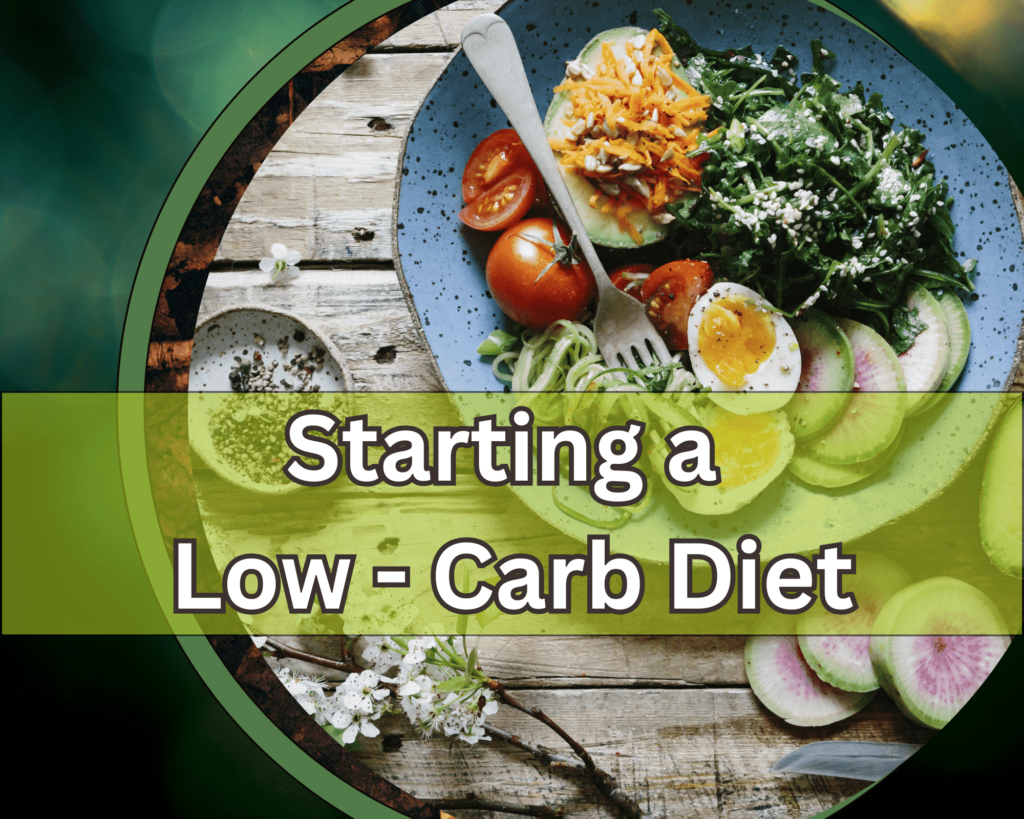
Disclosure: Please be aware that I may receive a small commission (at no extra cost to you) if you decide to make a purchase after clicking on a link in this article and making your purchase through one of my affiliate links.
This site does not provide financial or medical advice and is just for entertainment purposes. Before making any significant dietary changes, you should talk to your doctor.
Our affiliate disclosure is available in our privacy policy.
Are you ready to take the first step towards starting a low-carb diet? Incorporating a low-carb diet into your routine can have a profound effect on your health, energy, and weight management efforts.
It is critical to arm yourself with the necessary information and resources before immersing yourself in the low-carb lifestyle.
Beginning with an overview of carbohydrate intake, this article will go over some of the fundamentals of a low-carb diet, including how to plan meals and overcome obstacles.
In this blog post, we’ll explore some of the basics you need to know about starting a low-carb diet, from understanding the basics of carbohydrate intake to practical tips for meal planning and navigating potential challenges.
If you’re eager to revitalize your approach to nutrition and revolutionize your relationship with food, then join us as we jumpstart your journey into the empowering realm of low-carb living!
Table of Contents
Why a low-carb diet is beneficial
Switching to a low-carb diet can have a profound impact on your overall health and well-being. By reducing your intake of carbs, you can stabilize your blood sugar levels and reduce the risk of developing type 2 diabetes.
Additionally, a low-carb diet can also lead to improved cognitive function and mental clarity, as it reduces inflammation in the brain.
Furthermore, embracing a low-carb lifestyle can help with weight management by promoting fat loss while preserving lean muscle mass. Many individuals also report experiencing increased energy levels and reduced cravings for unhealthy foods when they start a low-carb diet.
It’s important to remember that each person’s body is unique, so finding the right balance of carbohydrates for your individual needs is crucial for long-term success on this dietary journey.
Benefits of a low-carb diet
Low-carb diets have become immensely popular in recent times due to their promise of quick and effective weight loss. With the ever-increasing awareness of the detrimental effects of excessive carbohydrate consumption on health, people are turning to low-carb diets as a solution.
The surge in popularity can also be attributed to the growing body of scientific evidence supporting the efficacy of low-carb diets in managing various health conditions, such as diabetes, metabolic syndrome, and polycystic ovary syndrome.
Another key factor driving the rise of low-carb diets is their flexibility and adaptability to different dietary preferences and lifestyles. Whether it’s keto, paleo, Atkins, or other variations of low-carb eating plans.
Individuals have plenty of options to choose from based on their personal needs and taste preferences. As more celebrities and influencers share their success stories with low-carb diets on social media platforms, this has further fueled the trend by creating a sense of community and support for those embarking on a low-carb journey themselves.
Why low-carb diets are popular now
Low-carb diets have become more popular for a number of reasons, but the main ones are weight loss and health benefits that people think they offer. Here are some of the main reasons why low-carb diets are so popular:
Weight Loss: A lot of people use low-carb diets to help them lose weight. When you cut back on carbs, your body starts using fat stores for energy, which helps you lose weight. Low-carb diets may also help you control your hunger and eat fewer calories overall.
Controlling insulin: Carbohydrates, especially refined carbs, can make blood sugar levels rise, which makes the body make more insulin. By cutting back on carbs, low-carb diets may help keep blood sugar levels and insulin responses in check. People who have insulin resistance or type 2 diabetes may benefit the most from this.
Better Metabolic Markers: Some research suggests that low-carb diets can make metabolic markers like blood pressure, triglyceride levels, and HDL cholesterol levels better. There is a lower chance of getting cardiovascular disease when these changes happen.
Stable Energy: Carbohydrates can make blood sugar levels go up and down, which can make you feel tired and hungry. A low-carb diet might help keep your energy levels steady throughout the day by giving you a more steady source of energy.
The ketogenic diet, the Atkins diet, and the paleo diet are all popular ways to eat that focus on low-carb or very low-carb approaches. The success stories and testimonials that go along with these diets help to make them so popular.
Influence from Social Media: The growth of social media has made many diets more popular, including low-carb diets. Influencers, celebrities, and health fans often talk about their experiences and successes, which can inspire other people to try the same things.
Focus on Real Foods: A lot of low-carb diets tell you to eat whole, unprocessed foods and less highly processed and sugary foods. People are becoming more interested in clean eating and health in general, which fits with this focus on real, nutrient-dense foods.
Scientific Research: Some scientific studies show that low-carb diets may help people lose weight and may be good for their health in other ways as well. In the medical and health communities, this study helps to build trust in and support for low-carb diets.
Diets have different effects on different people, so what works for one person might not work for another. This is why you should talk to a doctor or registered dietitian before making big changes to your diet: to make sure that the plan you choose fits with your health goals and needs.
Understanding the basics of a low-carb diet
Having a good understanding of the basics is key to achieving success. While there are different variations of low-carb diets, such as the ketogenic diet or Atkins, the fundamental principle remains the same: reducing your intake of carbohydrates and replacing them with healthier alternatives.
To start your journey into low-carb living, it’s crucial to understand which foods contain higher amounts of carbs and which ones fit within the parameters of your chosen eating plan. Generally speaking, foods that are high in starches and sugars should be avoided or consumed in moderation, while focusing on whole foods rich in protein and healthy fats.
Making sense of macronutrients and carbohydrates
When starting a low-carb lifestyle, it’s important to know about macronutrients and carbohydrates. Macronutrients, or “macros,” are the three main food groups that make up our diet: fats, proteins, and carbohydrates.
Carbs are the main thing that gives our bodies energy. They can be found in grains (like wheat and rice), legumes (like beans and lentils), fruits, vegetables, and even dairy products. Carbs can be broken down even further into two groups: simple carbs and complex carbs.
Simple carbohydrates are made up of sugars that give you quick energy but are broken down quickly. These are things like table sugar, honey, syrups, sugary drinks, candies, pastries, and white bread, pasta, and rice. They are also known as “empty calories.”
Even though they give us energy, eating too many of them can make us gain weight. On a low-carb diet, you limit the amount of carbs you eat, which tells your body to burn fat for energy instead.
In contrast, complex carbohydrates are made up of longer chains of sugar molecules that digest more slowly. It’s true that complex carbs are better than simple carbs, but they are still carbs. A diet low in carbs is what you want to do.
Planning your low-carb meals and snacks
Good meal planning can help you maintain a steady blood sugar level and keep you feeling fuller for longer.
When planning your low-carb meals, it’s essential to focus on incorporating nutrient-dense foods that are high in protein and healthy fats. I can’t stress enough the importance of “HEALTHY FATS”. These will help satisfy your hunger while providing the necessary nutrients for overall health.
Lean sources of protein such as chicken, fish, tofu, and eggs should be part of every low-carb meal. They not only provide satiety but also support muscle growth and repair. Incorporating a variety of non-starchy vegetables like spinach, broccoli, peppers, and zucchini can add color and flavor to your plate without significantly increasing carb content.
Furthermore, including healthy fats in your meals is crucial for both taste and satiety. Avocados, nuts (like almonds or walnuts), seeds (such as chia or flaxseeds), olive oil, and coconut oil are excellent choices that can enhance the flavors of your low-carb dishes while keeping you satisfied.
Foods to include in a low-carb diet.
You can eat a lot of different foods on a low-carb diet, not just healthy fats and vegetables that don’t have a lot of starch. These foods not only give you the nutrients you need, but they also help keep your blood sugar levels steady.

If you are on a low-carb diet, you should eat a lot of foods that are high in protein. Tofu, Greek yogurt, eggs, lean meats like chicken, turkey, or fish, and eggs are all great sources of protein that can help you feel full for longer. Adding these to your recipes will help you meet your daily protein needs while also cutting down on your carb intake.
Cheese and cottage cheese are examples of dairy products that can be eaten on a low-carb diet, but they should only be eaten in small amounts because they contain lactose. They can make food taste better and be creamier without making you eat a lot more carbs.
Nuts and seeds are also great for low-carb diets because they have healthy fats and protein. Adding nuts and seeds like almonds, walnuts, chia seeds, and flaxseeds to salads or eating them as snacks is a great way to get extra nutrients.
When you’re on a low-carb diet, vegetables should be the main part of your healthy eating plan. Some vegetables that don’t have a lot of starch are broccoli, tomatoes, cucumbers, bell peppers, spinach, and kale. These vegetables are also high in fiber, vitamins, and minerals. These fiber-rich vegetables help your body digest food and make you feel full after a meal.
Berry fruits, like strawberries, blueberries, raspberries, and blackberries, are better for people on a low-carb diet because they have fewer carbs than tropical fruits like bananas and mangoes. You can still get the antioxidant benefits from them if you eat them in moderation.
If you are on a low-carb diet, you should stay away from starches because they can quickly raise your blood sugar and make it harder to lose weight. This means you shouldn’t eat bread, pasta, rice, potatoes, corn, or other common foods. Try cauliflower rice or zucchini noodles instead, which are healthier and will satisfy your cravings without giving you extra carbs.
Aside from staying away from starchy foods, it’s also important to be aware of the sugars that are hidden in many things. A low-carb diet can easily go off the rails because many processed foods have added sugars. It’s very important to read labels carefully and pick whole food options whenever you can.
Protein is an important part of a healthy diet, and it’s especially important for people on a low-carb diet to keep their muscle mass. Including lean protein sources in your meals, like turkey breast, chicken breast, fish, tofu, or legumes, can help you feel full and focused all day.
Another important part of a low-carb diet is eating healthy fats. Not only do these fats add flavor and make you feel full, but they also help the brain work better, lower inflammation, and keep the heart healthy. Avocados, olive oil, nuts and seeds, coconut oil, and fatty fish like salmon and sardines are all great places to get healthy fats.
When planning your meals on a low-carb diet, it’s important to choose foods that are high in vitamins and minerals. Because they are high in fiber and low in carbs, vegetables like spinach, broccoli, kale, peppers, and cauliflower are great choices. For extra crunch, you can sauté these vegetables in olive oil or add them to salads.
On top of vegetables, fruits can also be part of a low-carb diet, but you need to be careful which ones you pick. When it comes to carbs, berries like strawberries and raspberries are lower than fruits like bananas and grapes.
Foods to avoid on a low-carb diet
Foods to avoid include processed and packaged foods that are typically high in refined carbohydrates, such as white bread, pasta, sugary snacks, and desserts. These types of foods can cause blood sugar spikes and hinder weight loss progress. Additionally, starchy vegetables like potatoes and corn should be limited or avoided altogether due to their higher carbohydrate content.
It is also important to minimize the consumption of sugary beverages such as soda or fruit juices, as they are packed with added sugars. Instead, opt for water infused with fresh fruits or herbs for a refreshing and hydrating alternative.
Furthermore, it’s essential to steer clear of fatty meats like bacon or processed deli meats that often contain unhealthy additives and preservatives. Choosing lean sources of protein such as chicken breast, turkey breast, fish, tofu, or legumes is a healthier option on a low-carb diet plan.
Last but certainly not least crucial is avoiding sugary condiments like ketchup or barbecue sauce which can add unnecessary carbs to your meals.
Avoid artificial sweeteners, as they can still elicit an insulin response and may disrupt blood sugar levels. Instead, use natural sweeteners sparingly, like stevia or monk fruit extract.
In addition to mindful food choices, it’s important to pay attention to portion sizes.
Even low-carb foods can contribute to weight gain if consumed in excess. Be aware of the serving sizes recommended for each type of food and try not to exceed them.
To stay satisfied with a low-carb diet plan, focus on incorporating plenty of fiber-rich vegetables into your meals. Vegetables such as broccoli, spinach, cauliflower, and kale are all excellent options that provide essential vitamins and minerals while keeping carb intake in check.
Moreover, don’t be afraid to include healthy fats in your diet. Contrary to popular belief, consuming fat does not necessarily lead to weight gain. In fact, adding sources of beneficial fats like avocados, extra virgin olive oil, and nuts can help keep you feeling satiated and support your overall health.
Summary of starting a low-carb diet
Starting a low-carb diet can be an empowering and transformational journey towards better health and well-being. By implementing the principles outlined in this article, you are laying the foundation for a sustainable and successful transition to a low-carb lifestyle.
Remember to stay patient and persistent, as results may take time to manifest, but ultimately the rewards will be worth it. With dedication, support, and informed decision-making, you can overcome any challenges and achieve your health goals. So, take the first step today towards a healthier, happier you by embracing the low-carb lifestyle!
Table of Contents

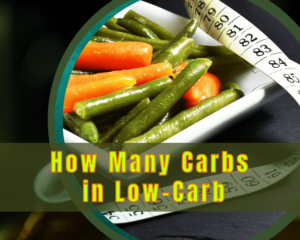
How Many Carbs in a Low-Carb Diet Is Ideal?
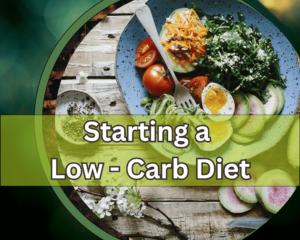
Jumpstart Your Journey: Starting a Low-Carb Diet 101

Keto and Intermittent Fasting Combo for Weight Loss

The Big Question About the Keto Diet for Weight Loss
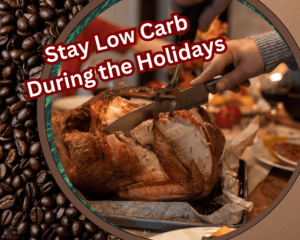
How to Stay Low Carb During the Holidays
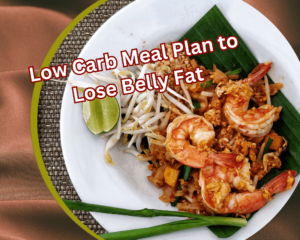
An Easy Low-Carb Meal Plan for Fat Loss

Mindful Eating: Key to Your Keto Diet During the Holidays

Your Ultimate Guide to the Best Keto Vegetables

What happens when you eat a low-carb high-fat diet?

How Many Carbs Are in a Low-Carb Diet? Let’s Take a Look.
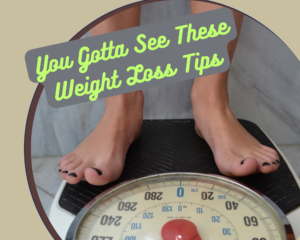
Top Tips for Fast and Effective Weight Loss
Disclosure: Please be aware that I may receive a small commission (at no extra cost to you) if you decide to make a purchase after clicking on a link in this article and making your purchase through one of my affiliate links.
This site does not provide financial or medical advice and is just for entertainment purposes. Before making any significant dietary changes, you should talk to your doctor.
Our affiliate disclosure is available in our privacy policy.










